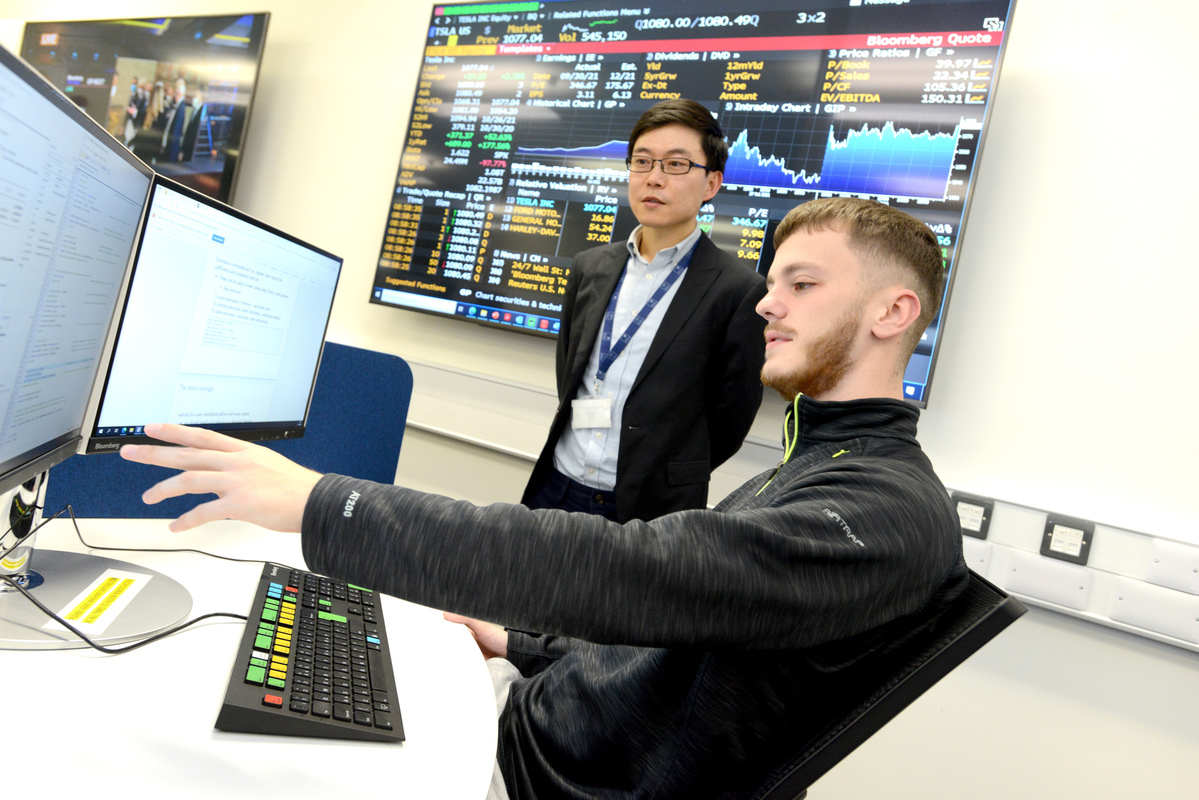Module Overview
This module is designed to introduce the principles and methods for statistical and econometric modeling. It provides students with the opportunity to develop the fundamental skills of using econometrics software packages that are essential for students who wish to pursue further studies or a professional career in economics, finance or related disciplines. Real-world data can be used in this module to help students to develop problem-solving skills.
Module Overview
The module is designed to provide an overview of the development of political economy and its evolution into the subject of economics from the 18th Century onward. It seeks to introduce key figures in the history of economics and their classic texts, and through giving students an opportunity to develop an understanding of the historical contexts in which they developed their ideas, aims to enable the concepts and models used in other economics modules to be analysed more thoroughly.
Module Overview
The purpose of the module is to familiarise and develop students’ awareness and ability to command the various initiatives and tools within finance. The focus will be the introduction of the regulatory environment and requirements to “practice”, which will enhance employability of students. Sections of the learning schedule are kept open to ensure that the module is teaching the most current issues in financial developments.
Technical skills are taught with the aid of computer data sources and constructs of coding, and financial mathematics, through programming software. Developments in financing methods and related articles will also be introduced and explored within sessions.
The module reinforces the importance of an ethical and professional approach, through the review and knowledge of codes of conduct and various external verification techniques and enforcement mechanisms. The module is designed to give students technical ability and relevant knowledge and skills of real-world developments in finance, which is useful from an employability perspective.
Module Overview
The purpose of this module is to provide students with the opportunity to develop an understanding of macroeconomic theory and macroeconomic policies which are crucial for efficient functioning of an economy. Students have the chance to examine thoroughly macroeconomic theories and policies of a market economy in both closed and open economy contexts.
In order to conceptualise at the level of the macroeconomy, this course provides students with the opportunity to develop the tools of modern macroeconomic theory in the context of the global economy and aims to explain the determination of aggregate output; of employment and prices; the tools of monetary and fiscal policy used by governments to fight inflation and unemployment and to promote growth in the economy.
Module Overview
The aim of this module is to provide students with an opportunity to develop a theoretical underpinning for the final level economics modules. The module examines the theory of the consumer behaviour, the theory of the firm, and the action of firms in differing market structures. The module ends with an analysis of general equilibrium. The module emphasises the use of diagrams and reasoning in the analysis of microeconomic problems and solutions that affects consumers, producers and policy-makers.
Module Overview
The aim of this module is to introduce the role of the financial manager and the impact of economic environment on financial management function. The module can help students to develop abilities to evaluate, interpret, and discuss key issues surrounding investment, financing, and working capital management decisions.
The module begins by considering the financial management function and environment before introducing the time value of money and discounted cash flow allowing students to develop investment appraisal and business valuation techniques. Business finance and capital structure theories will also be considered.
As an accredited module, this can help improve your employability.
Module Overview
The aim of this module is to introduce the role of the financial manager and the impact of economic environment on financial management function. The module helps students to develop abilities to evaluate, interpret and discuss key issues surrounding investment, financing, and working capital management decisions.
The module begins by considering the financial management function and environment before introducing the time value of money and discounted cash flow allowing students to develop investment appraisal and business valuation techniques. Business finance and capital structure theories will also be considered.
Module Overview
Lincoln International Business School (LIBS) believes that an option to study overseas is a valuable educational opportunity for our students.
The optional year is intended to:
- enable students to benefit from studying similar subjects within a cross cultural environment, by exposing students to a wider academic and cultural experience;
- facilitate reflexivity in learning and personal and professional development;
- enhance their future employment opportunities by increasing their cultural and professional mobility.
This module is optional for all taught on campus undergraduate students within Lincoln International Business School. Study Abroad is a year long module which enables students to spend time studying abroad at one of the University’s approved partner institutions.
During the year spent abroad, students share classes with local students and study on a suite of locally-delivered taught modules which have been approved in advance by the University. As many partner institutions support internships it is anticipated that some students will elect to combine study (minimum one semester equivalent) with work and or a period of volunteering.
Eligible students must have completed their second year of study to a satisfactory standard (normally with an average of a 2.1 or above, dependent upon partner requirements) standard and successfully completed the application process.
Upon completion of the study period abroad, each student will be required to submit a portfolio including a reflection on the experience of living and studying in a different cultural environment and the skills acquired.
Module Overview
The LSMIF will be designed to provide students with the essential knowledge on the following main knowledge blocks - at intermediate level for Year 2:
- How stock markets work and how to read financial data
- Valuation techniques including cash flow projections, dividend growth modelling, and comparative analysis.
- Market timing and technical analysis.
- Asset allocation optimization
- Quarterly investment committee meetings with experts from the industry.
- Investment discussion meetings.
Module Overview
This module is aimed at those students who have decided to take a year out of formal studies to gain accredited work experience and are registered on a degree programme with an accredited professional practice element. The Professional Practice Year aims to give students a continuous experience of full-time work within an organisation.
It should be a three way co-operative activity between employer, student and University from which all parties benefit. Students can choose to pursue a variety of options including a placement year, a consultancy project or a work-based dissertation. Potential costs relating to this module are outlined in the Features tab.









